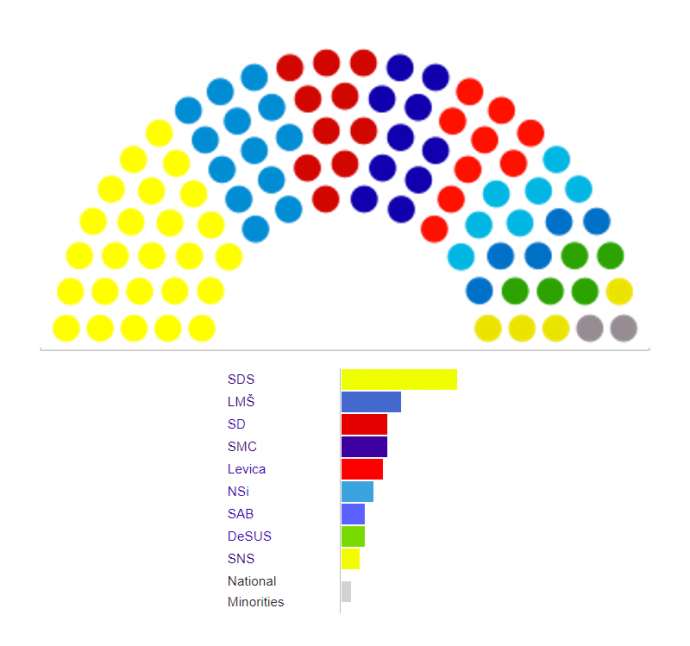STA, 9 February 2022 - The ruling Democrats (SDS) and the other coalition parties expressed on Wednesday their readiness for election and a wish for programme-oriented campaigning, with the parties of the current opposition also saying they are ready and that they expect good results, as President Borut Pahor formally called the general election for 24 April today.
In response to Pahor's announcement, representatives of parties currently represented in the National Assembly expressed their readiness for the election process to start.
The ruling Democrats (SDS) welcomed Pahor's announcement, with the leader of the SDS deputy group, Danijel Krivec, expressing the wish for a programme-oriented election campaign, so that "we move away a bit from all that is happening at the moment".
They expect an exchange of views and arguments, thus winning voters over on the basis of concrete commitments and actions, not empty phrases and platitudes, added Krivec.
SDS president and Prime Minister Janez Janša said on Facebook as he responded to Pahor's announcement that it would be the first regular election in Slovenia since 2008.
"The coalition of the SDS, NSi and Concretely successfully chaired the EU Council, ensured stability, recovery and development. Thanks also to the constructive part of the opposition and minority deputies."
Janša said that the coalition had managed this "despite the shots in the back by KUL", in reference of the informal Constitutional Arch Coalition formed by the four centre-left opposition parties.
The coalition New Slovenia (NSi) said that the party was looking forward to the election with confidence, a good legacy from the current mandate and with the conviction that they can win the trust of the electorate again.
Gregor Perič, the leader of the Concretely deputy group, said that the newly merged party was ready for the election as well, and that its new political format will aim to highlight the advantages of cooperation and integration.
Perič also considers it very important that the election results are recognised by all as legal and legitimate and that there is no shadow of doubt cast over them.
Representatives of the KUL alliance of four opposition parties also responded to Pahor's announcement today, stressing that their post-electoral cooperation agreement was ready and clearly outlined.
The Left, Social Democrats (SD), Marjan Šarec List (LMŠ) and the Alenka Bratušek Party (SAB) thus reiterated that they would get behind the leader of the party who would win the highest share of the votes among them.
As for possible cooperation with the newly-formed Freedom Movement under Robert Golob, who has a high level of support according to recent polls, Left coordinator Luka Mesec ruled nothing out and pointed out the need for further negotiations.
The leader of LMŠ, Marjan Šarec, also commented on president Pahor's decision to give the mandate to form a government to the person with sufficient support in the new parliament after the election.
That was a good call that will enable Slovenia's politics to avoid the scenario seen in 2018, said Šarec, when "Janez Janša didn't even accept the mandate because he clearly had nobody to form a coalition with".
The main concern for the opposition parties thus remains to achieve the highest possible voter turnout, so that the supporters of the current government do not get the opportunity to form a government again, which was also reiterated by the SAB leader Alenka Bratušek.
As President Pahor also called on the parties to maintain a high level of political culture during the campaign, Mesec echoed these sentiments, saying that he fears that this year's election campaign will be dirty.
The leader of the National Party, Zmago Jelinčič, predicted "an interesting campaign with revelations both from the left and the right," adding that he "expects people not to fall for the wunderkinds and the new faces again".
After today's signing of the presidential decree to call the election, parties and groups of voters can enter their bids for the election starting from 14 February. These need to be submitted by 24 March, when the official election campaign starts.







